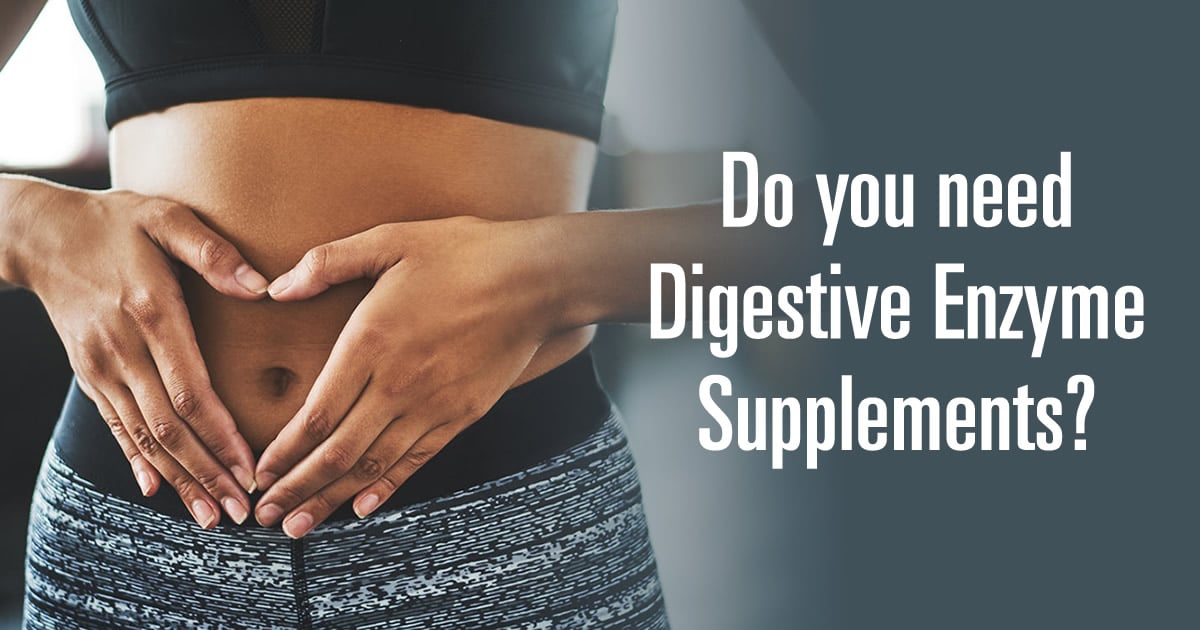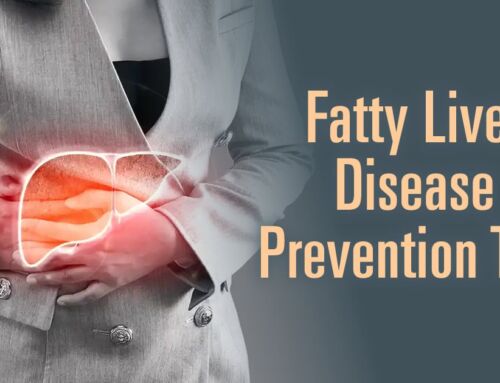Digestive diseases affect around 60 to 70 million people in the United States. Astonishingly, this causes more than 21 million hospitalizations every year. It’s important to pay attention to changes to your gut health to help you avoid medical complications.
With the high prevalence of digestive diseases, it’s not surprising that there’s an increased interest in digestive enzymes.
This article will discuss what digestive enzymes are and how they affect your gut health. We’ll outline how enzyme deficiencies can occur and when you should see a doctor. Keep reading to learn more about how to care for your digestive enzymes and improve your gut health.
What Are Digestive Enzymes?
Your body naturally produces digestive enzymes to aid digestion. At different points during the digestive process, your body releases enzymes to break down the food you eat. This helps you absorb nutrients such as carbohydrates, proteins, and fats.
Digestive enzymes also occur naturally in plant-based foods. For example, pineapples, mangoes, honey, bananas, avocados, kimchi, and ginger are good sources of digestive enzymes. Your digestive enzymes are essential for optimal gut health, digestion, and nutrition. Many types of digestive enzymes play a key role in keeping your gut health in check.
Types of Digestive Enzymes
The main types of digestive enzymes originate in the pancreas. We call them pancreatic enzymes. They include:
- Amylase. Your pancreas makes this enzyme to break down complex carbohydrates. It’s released into the upper part of the small intestine, known as the duodenum. This enzyme converts carbohydrates into sugar, which your body then uses for energy.
- Lipase. This pancreatic enzyme helps digest fats. It’s released into the duodenum and, along with bile, breaks down high-fat foods such as olive oil, butter, and pizza.
- Protease. Your pancreas produces this enzyme to break down proteins in the small intestine. It allows your body to absorb protein-building blocks for essential bodily processes.
The cells that line your small intestine also produce digestive enzymes such as:
- Lactase. This enzyme helps you digest the milk sugar lactose. It breaks down lactose into sugars that are easily absorbed into the bloodstream.
- Sucrase. You need this digestive enzyme to break down sucrose, which is another name for table sugar.
Digestive Enzyme Deficiency
If you lack certain digestive enzymes, your body can’t digest the food you eat. It also can’t absorb the nutrients that your body needs to function. This can cause digestive symptoms, food intolerances, and nutritional deficiencies.
The most common digestive enzyme deficiencies are:
- Congenital sucrase-isomaltase deficiency. This condition occurs due to a low supply of sucrase, which prevents your body from digesting sugars.
- Exocrine pancreatic insufficiency (EPI). This condition occurs when you don’t have enough pancreatic enzymes (amylase, lipase, and protease). EPI results in difficulty digesting carbohydrates, fats, and proteins.
- Lactose intolerance. This condition occurs when your small intestine doesn’t make lactase. It can cause problems digesting milk products such as dairy milk, ice cream, and cream cheese.
Symptoms
Digestive enzyme deficiencies can lead to malnutrition and gastrointestinal symptoms. Signs that point to a potential digestive enzyme deficiency include:
- Excess gas and bloating
- Diarrhea
- Stool that floats or smells worse than normal
- Vitamin deficiencies in lab work
- Abdominal cramps after eating
- New diagnosis of IBS
- Unusual weight loss
Causes
Digestive enzyme deficiencies can occur due to genetics. Cystic fibrosis is an inherited disorder that affects the lungs and digestive system. In this condition, the mucus accumulates in the pancreas and blocks the enzymes from entering the small intestine. This prevents them from breaking down food and absorbing nutrients.
Other medical conditions are also associated with digestive enzyme deficiencies, such as:
- IBS
- Celiac disease
- Crohn’s disease
- Pancreatitis
- Pancreatic cancer
While the exact cause isn’t clear, it may be due to inflammatory changes in the gut microbiome. This can damage the small intestine and pancreas, which are responsible for producing digestive enzymes.
When to See a Doctor For Digestive Enzyme Deficiency
You should contact your doctor if you suspect you have a digestive enzyme deficiency. As a reminder, the symptoms that you should be aware of include the following:
- Excess gas and bloating
- Diarrhea
- Stool that floats or smells worse than normal
- Vitamin deficiencies in lab work
- Abdominal cramps after eating
- New diagnosis of IBS
- Unusual weight loss
Your doctor can diagnose an enzyme deficiency by completing a medical exam, blood work, and breath tests. Treatment for digestive enzyme deficiencies varies depending on the severity.
Your doctor may prescribe pancreatic enzyme replacement therapy (PERT). This is a medication that supplies your body with the enzymes it needs to break down carbohydrates, fats, and proteins. PERT is FDA-regulated and considered safe and effective for use with enzyme deficiencies. Still, this medication can cause side effects such as constipation, diarrhea, nausea, and abdominal cramping.
Digestive symptoms usually don’t clear up with medication alone. But combining PERT with a healthy diet can yield good results. If medication and dietary changes don’t provide relief from your symptoms, working with a registered dietician can help. Everyone is different, so it may take time to find the diet to which your symptoms respond best.
How to Care for Your Digestive Enzymes
Unless you’ve been diagnosed with a digestive enzyme deficiency, you most likely don’t need to take enzyme supplements. You can boost your digestive enzymes naturally by making healthy dietary and lifestyle choices.
Consuming plant-based foods can raise the levels of digestive enzymes in your system. Whole foods contain enzymes that may improve digestion. Avoiding hard-to-digest foods can also enhance your body’s ability to break down and absorb nutrients. This includes unhealthy fats and highly processed foods. Eating smaller, more frequent meals can reduce your symptoms and avoid overloading your stomach.
To ensure your pancreas and small intestine stay healthy to produce enough enzymes, you should avoid smoking and drinking too much alcohol. These lifestyle choices can damage your gut health and increase your risk of digestive problems.
Digestive enzyme deficiencies can cause uncomfortable symptoms. But it’s possible to manage your condition with help from your doctor. If you suspect you have a digestive enzyme deficiency or other digestive condition, you can schedule an appointment online or call our office at 210-615-8308.




